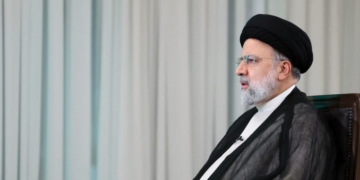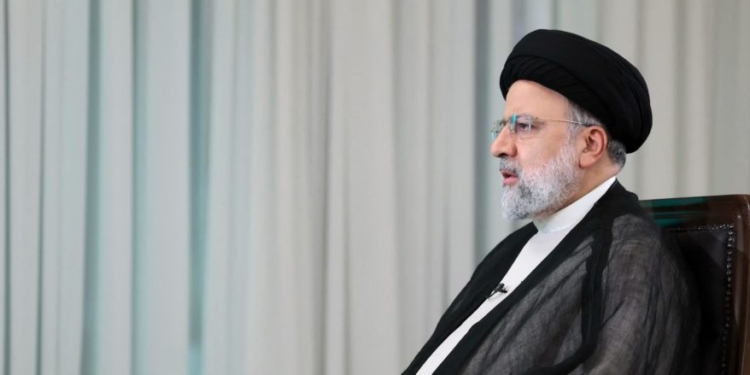The Biden administration is asking its European allies not to confront Iran on its nuclear program ahead of the U.S. elections in November, several diplomats involved in negotiations told The Wall Street Journal.
The U.S. and the West at large have become increasingly concerned about Iran’s rapidly growing nuclear program, its potential to weaponize such capabilities and its stubbornness toward international oversight. In a bid to avoid angering Tehran, the Biden administration is urging against efforts led by France and Britain to censure Iran at the International Atomic Energy Agency’s (IAEA) member-state board meeting in June, saying that the U.S. will abstain from the motion, the diplomats told the WSJ.
Some diplomats have expressed fears that if action isn’t taken, it could undermine the IAEA’s credibility and risk weakening the West’s leverage over Tehran, according to the WSJ. A number of them have become frustrated that the Biden administration has hamstrung their attempts to contain Iran’s nuclear program and failed to pursue a stronger policy in dealing with Tehran.
U.S. officials denied that the Biden administration was lobbying against a censure motion or that there was daylight between them and their European counterparts, according to the WSJ.
“We are increasing pressure on Iran through sanctions and international isolation,” a U.S. official told the WSJ, noting that the Biden administration is “tightly coordinated” with its European partners ahead of the IAEA board meeting in June. Another official said it is “totally false” that the Biden administration is attempting to avoid confrontation with Iran ahead of U.S. elections.
Iran has enriched enough uranium and fissile material to create three nuclear weapons, according to the latest data from the IAEA, the United Nations’ (UN) organization tasked with overseeing and policing Tehran’s nuclear activities. Iran regularly tries to ignore or circumvent IAEA oversight; IAEA Director General Rafael Grossi traveled to Tehran in early May to improve coordination with the Iranian regime to little avail, and European diplomats don’t expect a change in the status quo ahead of the June board meeting, according to the WSJ.
A key goal of the Biden administration was to get Iran back to a deal framework similar to the Joint Comprehensive Plan of Action (JCPOA), more informally referred to as the 2015 Iran nuclear deal. The nuclear deal was spearheaded by the Obama administration and eased up on international sanctions against Iran, in exchange for Tehran’s agreement to restrict its nuclear activities; the Trump administration pulled the U.S. out of the deal in 2018, citing its failure to properly contain Iran’s nuclear program while allowing to Islamic regime to economically thrive under sanctions relief. Iran has expanded its nuclear program since the U.S. pulled out of the deal.
The Biden administration has thus far failed to get Iran back into a nuclear agreement, with talks falling apart completely in late 2022. The administration has since attempted to take a diplomatic approach in dealing with Iran in the hopes of containing its nuclear program; the administration fears that if a censure vote is passed at the IAEA in June, it could anger Tehran and cause the regime to become more obstinate at oversight attempts, especially because of regime volatility concerns after the recent death of Iranian President Ebrahim Raisi.
Critics and lawmakers have decried the Biden administration’s “appeasement” approach toward Iran, which they claim has only emboldened the country against the rest of the West.
The State Department did not immediately respond to a request for comment.
All content created by the Daily Caller News Foundation, an independent and nonpartisan newswire service, is available without charge to any legitimate news publisher that can provide a large audience. All republished articles must include our logo, our reporter’s byline and their DCNF affiliation. For any questions about our guidelines or partnering with us, please contact [email protected].



























 Continue with Google
Continue with Google